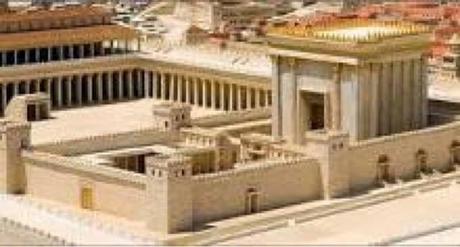 In the Gospel of Luke chapter 18 Jesus teaches His parable about a tax collector/sinner and a Pharisee. The Pharisee counts off all the superficial reasons he is righteous and pious and thanks God that he is so much better than the others present at The Temple like the tax collector.
In the Gospel of Luke chapter 18 Jesus teaches His parable about a tax collector/sinner and a Pharisee. The Pharisee counts off all the superficial reasons he is righteous and pious and thanks God that he is so much better than the others present at The Temple like the tax collector.Two men went up into the temple to pray; the one a Pharisee, and the other a publican.
11 The Pharisee stood and prayed thus with himself, God, I thank thee, that I am not as other men are, extortioners, unjust, adulterers, or even as this publican.
12 I fast twice in the week, I give tithes of all that I possess.
13 And the publican, standing afar off, would not lift up so much as his eyes unto heaven, but smote upon his breast, saying, God be merciful to me a sinner.
14 I tell you, this man went down to his house justified rather than the other: for every one that exalteth himself shall be abased; and he that humbleth himself shall be exalted.
In John Jesus tells us there is more than meets the eye to consider when judging others.24 Judge not according to the appearance, but judge righteous judgment. John 7:24
Jesus is telling us to judge with the scales weighted towards innocence rather than guilt. And He is saying appearances can be deceiving or in other words one can appear righteous and in fact be sinful.
Like the Pharisee who was self-righteous, he thought that by checking off his list of commandments and laws he was righteous and better than others. But it was not so. Yet the sinner/tax collector humbled himself and beat or smote his chest because he knew he had fallen short of the glory of God.As we all do but he felt shamed and he repented as well as he was able. And because of all that Jesus says he walked away from The Temple justified before God.How is it that Jesus was cool with sinners going to pray, worship and repent at The Temple but now a sinner is forbidden from The Temple?Why is The Temple no longer a gathering place for all and instead a place that is symbolic of exclusion as much as it is symbolic of The Lord?If The Lords ways are eternal why the change in policy? Jesus taught much in His short ministry but He never mentioned Temple Recommends, why?Jesus mentioned being prepared but He never spoke of worthiness as we understand it today.To Him repentance and a humble character would absolve one of their sins.Of all the parables He used to teach one of them mentions a sinner at The Temple and the sinner walks away justified before God so why is it that a sinner is the hero of this parable and not the Pharisee who commanded the respect and fear of everyone in Judea during the time of Christ?I think it's because the Pharisee was self-righteous and very boastful and therefore prideful. Whereas the sinner was humble and repented.
The truth is every one of us is a sinner to one degree or another so for any of us to condemn another is hypocritical. When Hesus used the word hypocrite it was almost always in the context of one condemning another.
Back during the 2nd Temple period there were 3 courtyards on the Temple Mount; the Men's court, the women's court and the court of the Gentiles.
Meaning in Jesus' time everyone was not only encouraged to go to The Temple, they were welcomed, even those who weren't Jewish or believing.
I can't find anything scriptural to justify a changed to something that is supposed to be eternal and unchanging.
Jesus preached against many things but the only thing about The Temple that ever got under His skin was the money changers. The sinners (all of us) were not bothering Christ in any way so far as He never preached against them at The Temple because if you were to exclude sinners truthfully you exclude every one of us.
